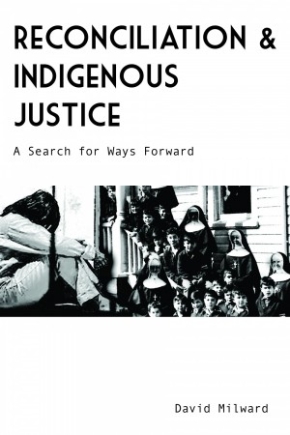In this KPU Reads, Gerald Bent shares his thoughts on David Milward’s bIn this KPU Reads, Gerald Bent shares his thoughts on David Milward’s book, Reconciliation & Indigenous Justice: A Search for Ways Forward(2022). Gerald is an Indigenous faculty member at KPU. He teaches various Indigenous themed courses in Indigenous studies and in the criminology department. For 14 years, Gerald has worked at the Correctional Service of Canada (CSC), working with Indigenous men and women who are incarcerated. Gerald is also a graduate student at the University of Northern B.C., researching and writing about his Nation’s traditional court system called Xitli’ix. He is also investigating his Indigenous community’s current restorative justice program, which is available to all members of the Lytton First Nation. Gerald finds it challenging to leave the Jimmy Choo store without making a purchase.

In Reconciliation & Indigenous Justice: A Search for Ways Forward, Indigenous legal scholar David Milward examines the negative impacts of the Indian residential school, which many First Nations children across Turtle Island/North America, were forced to attend. One of David’s arguments is the intergenerational trauma that many Indigenous children experienced while at residential school is a contributing factor to the continued hyper-incarceration of Indigenous men and woman, including Two-Spirit offenders, in the criminal justice system.
One teaching that David emphasizes with the reader is many settler peoples/Canadians hold on to the notion that since the Indian residential school is a thing of past, there is no longer a responsibility to connect this dark part of Canadian history to the present. From an Indigenous and correctional context, I offer the following:“Even though the last Indian residential school closed in 1996, many Indigenous peoples who are incarcerated at the CSC, are still dealing with the past harmful traumas they experienced at the residential school.”
Throughout Milward’s book, he describes to readers several ways on how residential school survivors, their families and the Indigenous community, can address the lingering impacts of the Indian residential school.
I have read several journal articles written by David Milward, including this latest book, and it is my opinion that it is essential reading – especially if KPU students want to have a stronger foundation about the Indian residential school, restorative justice, Indigenous corrections and interventions, Indigenous healing, and Elders working inside federal prisons.
